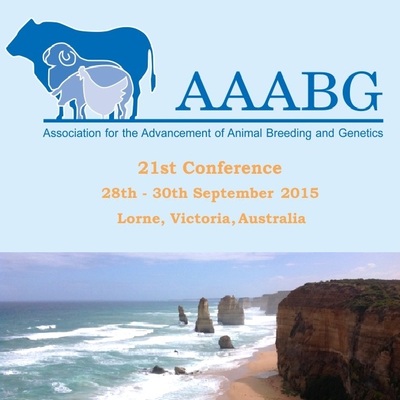Animal breeding for reduced poverty and improved food & nutrition security in developing countries (#40)
John Vercoe was passionate about international livestock research and helped shape the international livestock research agenda. He played a pivotal role in the formation of ILRI, guiding ILRI’s establishment from the merge of two former CGIAR centers. He also served on ILRI’s Board of Trustees for six years, five of them as Chair, and provided exemplary leadership during this time.
To date, the majority of developing country livestock production systems have not realized the same benefits from genetic improvement achieved in developed country livestock production systems. The reasons for this are complex and include: investment being prioritized into other aspects of livestock system development; lack of supportive policy, institutional arrangements and capacity on genetic improvement; the heterogeneity of livestock systems, farm-scales, and livestock management practices; as well as the diversity of the needs and preferences of livestock keepers. The International Livestock Research Institute (ILRI), and its various partners, are working to address these issues, such that livestock keepers and other stakeholders in livestock in developing countries, as well as poor food consumers, can benefit from improved livestock genetics. To this end, Research for Development focus areas include: a) assessment of livestock production systems and animal genetic resource use within these systems, for development of strategies on animal genetic resource use; b) promoting or creating improved breeds of livestock, the latter using approaches tailored to the system ranging from traditional (e.g. cross-breeding) to emerging (e.g. gene-editing); c) development of delivery systems for the improved livestock genetics, such as by facilitating the establishment of business models (e.g. public-private partnerships); and d) ensuring sustainability of the genetic interventions via appropriate policy environments, institutional arrangements, robust data capture, analysis and feedback systems, and built capacity. Gender dimensions are considered in each of these focus research areas, to ensure equitable benefit of genetic interventions to both women and men. In addition, theories of change are increasing being utilized to help ensure that the genetic interventions (packaged with other interventions) translate into the desired benefit - including reduced poverty and increased food and nutritional security - to the targeted beneficiaries. ILRI’s Global Livestock Genetics Program is referred to as LiveGene, and further details can be found at https://cgspace.cgiar.org/handle/10568/42176.
 AAABG 2015*
AAABG 2015*